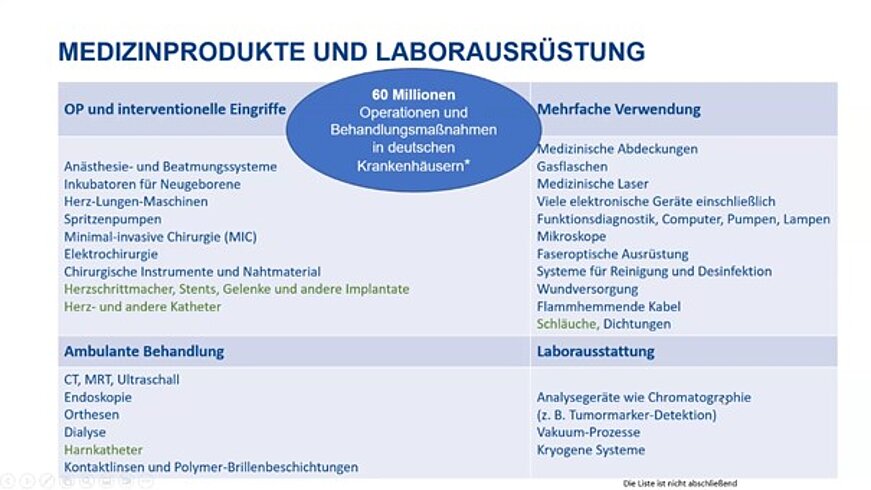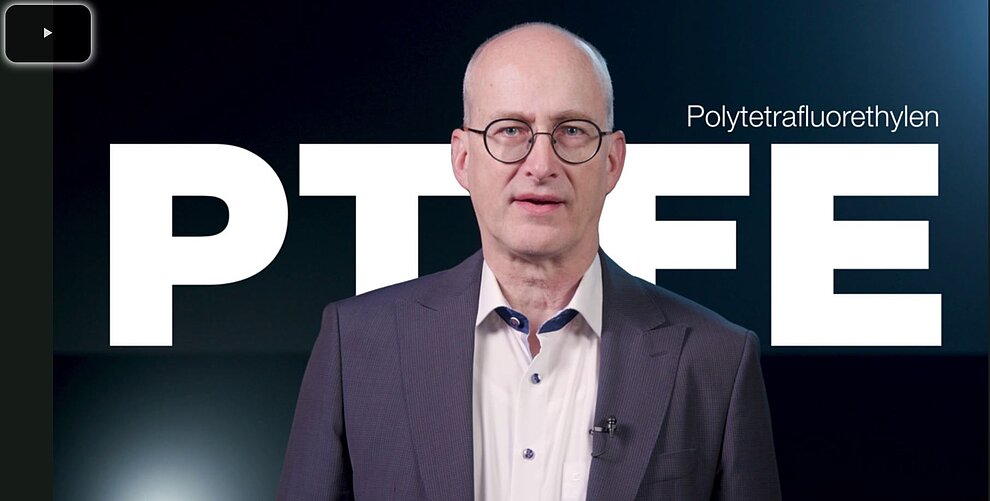On the planned ban on Teflon
![[Translate to English:] Merkle CAE Solutions zum geplanten Verbot von Teflon [Translate to English:] Merkle CAE Solutions zum geplanten Verbot von Teflon](/fileadmin/_processed_/4/5/csm_Teaserblog_119_PTFE_Verbot_1_db25a91dd0.png)
Once again, under the guise of environmental protection, a bill to ban, among other things, Teflon is being prepared by the EU in secret by unelected Idiologists.
As with the completely botched energy transition and the ban on the internal combustion engine, our major companies are once again too cowardly to cry out collectively and position themselves sharply. After all, they could provide a target for left-wing and green attacks. Siemens boss Kaeser would rather offer Luisa Neubauer a seat on the supervisory board so as not to cause a stir.
Where have we come to as the technology country Germany!
One of the few people to speak out publicly with such clarity is Stefan Dräger: "If the PFAS ban is implemented in the proposed form, it will affect almost all of our products, which will then no longer exist - and presumably us as a company as well. This is really existential."
PFAS - What is it?
The draft legislation can be found under the topic PFAS Restriction.
PFAS stands for per- and polyfluorinatedalkyl compounds. PFAS are a group of industrial chemicals comprising a very large number of substances. They are organic compounds in which the hydrogen atoms are completely ("perfluorinated") or partially ("polyfluorinated") replaced by fluorine atoms.
Among them there are toxic and non-toxic substances. But it is best to ban everything (with very few exceptions). Obviously, those who propose such laws are not very well versed in science. Before loud "ideology" is probably no more place for a scientific study.
With the main argument of the supporters of a ban, that Teflon does not degrade (persistence), one could also ban gold and other noble substances.
A short excursion into chemistry
Teflon (tetrafluoroethylene) is a compound of carbon and fluorine.
The periodic table below shows the electronegativity of the elements.
Fluorine is at the top right. Due to its high electronegativity, fluorine forms the strongest chemical compounds, even stronger than oxygen.
This is also where the high temperature resistance and chemical resistance of Teflon comes from.
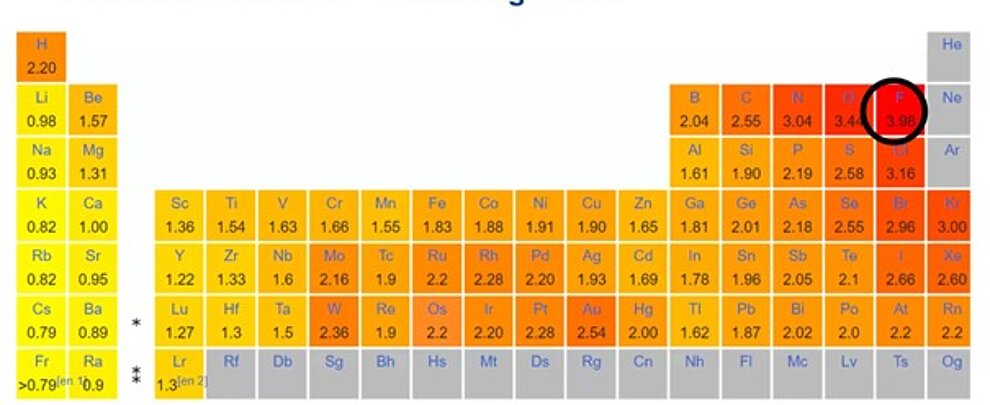
Teflon properties
Carbon has the strongest bond with fluorine. Resulting properties are:
- no chemical reactions with chemicals used for cleaning and sterilization
- biocompatible, e.g. for long-term implants
- low surface tension, thus dirt-repellent and easy to clean
- high dielectric strength and tracking resistance, making it an excellent insulator
- Lowest coefficient of friction of all polymers
- Coefficient of static friction = coefficient of dynamic friction, thus avoiding slip-stick effects
- High melting point at 327°C, autoclavable, e.g. for sterilization of surgical instruments
It is clear that such a substance does not simply degrade over time.
Alternatives
The argument of the supporters of the ban is that alternative substances should be sought and developed.
Again, a look at the periodic table helps.
What are the alternative substances to be found here? Noble gases like helium at 4 K = -269 °C and 25 bar?
One of the best and most expensive plastics, PEEK [C19H12O3]n, for example, shows considerably worse behavior as an insulator (see video). Finally, the oxygen binding is worse than that of fluorine.
The consequences of a ban
Let's take a look at the consequences that such a ban would entail.
The VDMA has published a table (selection) of the affected machines and systems here:
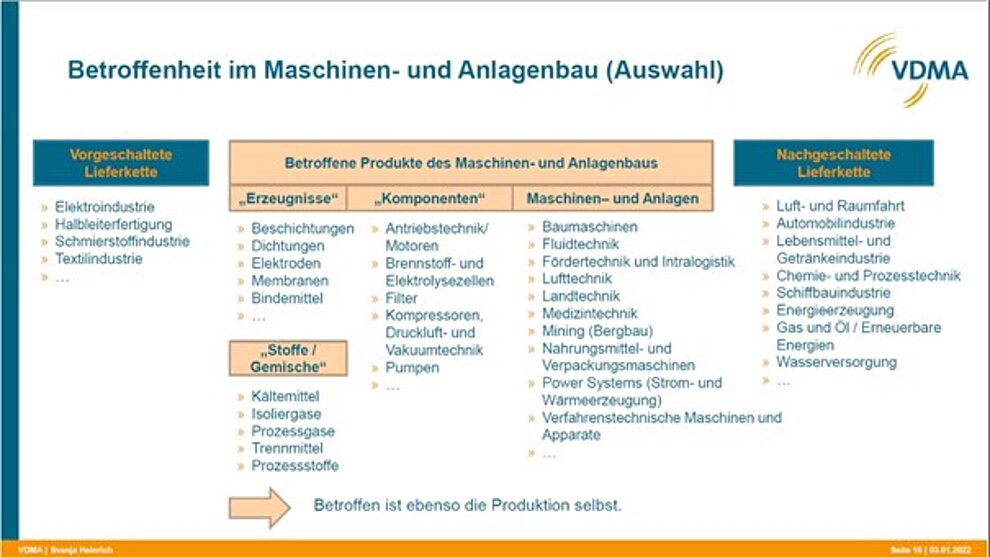
There is not too much left that is not affected by this.
The VDA has also commented on this:
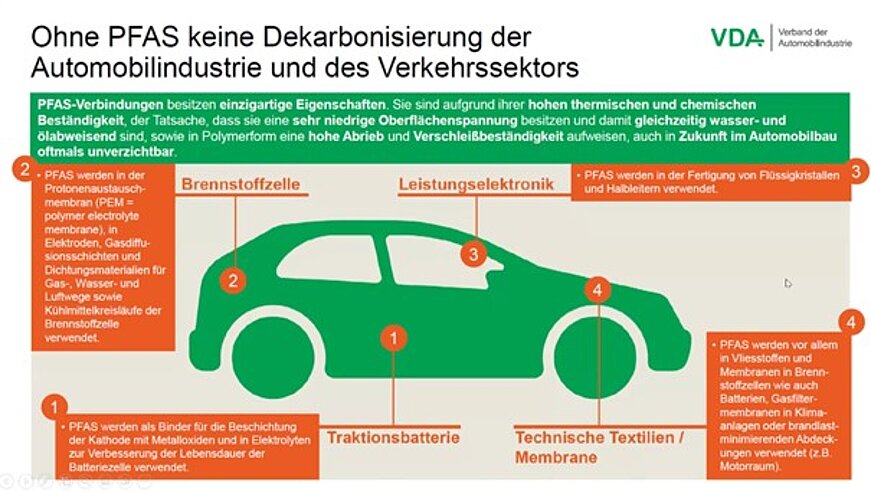
Of course, an operating room from the middle of the last century fits better with deindustrialization, but is that what you want?

Through various simulation projects from almost all industries, we know that Teflon has become an indispensable and valuable material in our industry, which makes many modern products possible.
From fuel cells, pump diaphragms, seals of medical devices, to modern equipment, PTFE has earned a place for itself through its excellent properties.
Because it exists, fluorinated materials are used wherever the goal is to become faster and more efficient.
Michael Eason, Materials Engineer, James Walker, Woking, UK Nature (620, 24 27, 2023)
Once again, we run the risk of another nail in the coffin being driven into the European economy. Is it just blinded stupidity or a hidden agenda to drive our own countries into deindustrialization in this way? Neither the USA nor China or India will go along with this madness.
Unfortunately, this topic has not arrived at alternative media either. I no longer expect the public broadcasters to devote themselves to such relevant topics.
Make the topic public, speak with your delegates and politicians. Perhaps those belong in her barriers pointed, which cook by ever further prohibitions and nonsensical regulations under the cover of the environmental protection and the Green Deal her "ideologically" coined soup, without only at the beginning to guess, which damage they cause. Also environmentally, as the waste of resources in the so-called renewables shows. A glance at the energy density would suffice here.
Yours Stefan Merkle

PS:
You can find further links to the topic under
https://www.karlstorz.com/de/de/pfas-ban-risks-medical-care-in-the-eu.htm
https://echa.europa.eu/de/restrictions-under-consideration/-/substance-rev/72301/term
https://www.consumernotice.org/environmental/water-contamination/pfas/
https://www.consumernotice.org/environmental/water-contamination/pfas/products/
